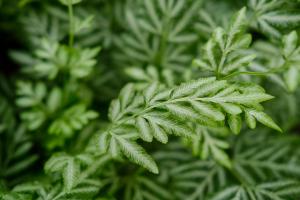Introduction
When it comes to maintaining a beautiful garden or lawn, keeping weeds at bay is crucial. Most homeowners use weed killers or herbicides to control the growth of weeds, but they often wonder whether they should spray them before or after watering their plants. In this article, we will explore whether you should water plants before spraying weeds or not, and the reasons behind it.
Watering Plants Before Spraying Weeds
It is generally recommended to water plants before spraying weeds. The reason is that weeds absorb water and nutrients from the soil faster than the plants, which makes them more susceptible to herbicides. By watering your plants first, you allow them to absorb as much water and nutrients as possible, making them stronger and better able to tolerate the herbicide.
Additionally, watering the soil before spraying helps to dampen the area, which makes it easier for the herbicide to stick to the weed's foliage. If you spray herbicides on dry soil, the weeds can easily repel the spray, making it less effective. By dampening the area, you improve the absorption rate, which allows the herbicide to penetrate deeply into the roots of the weeds, ultimately killing them.
Why You Should Not Water Plants After Spraying Weeds
After spraying weeds with herbicides, it's recommended that you avoid watering your plants for around 24-48 hours. The reason is that watering too soon can dilute the herbicide and make it less effective. Additionally, watering too soon after spraying can increase the likelihood of the herbicide being washed away before it has had a chance to work on the weeds.
Furthermore, watering too soon after spraying can increase the risk of your plants absorbing the herbicide, which can be harmful to their growth. If you water your plants too soon after spraying, the water can wash the herbicide onto the leaves and roots of the plants, causing damage that can result in stunted or wilted growth, leaf spotting, or even death in extreme cases.
Conclusion
If you're looking to control weeds in your garden or lawn, it is essential to do so carefully without causing damage to your plants. By watering your plants before spraying weeds, you can ensure that your plants are strong enough to withstand the herbicide, and that the herbicide is more effective in eradicating the weeds. Additionally, it's vital to remember not to water your plants after spraying weeds, as this can dilute the herbicide and make it less effective, increase the risk of absorption by your plants and increase the likelihood of it being washed away before it can kill the weeds. By following these simple tips, you can keep your garden or lawn weed-free and healthy for years to come.

 how many times do yo...
how many times do yo... how many planted tre...
how many planted tre... how many pine trees ...
how many pine trees ... how many pecan trees...
how many pecan trees... how many plants comp...
how many plants comp... how many plants can ...
how many plants can ... how many plants and ...
how many plants and ... how many pepper plan...
how many pepper plan...
































